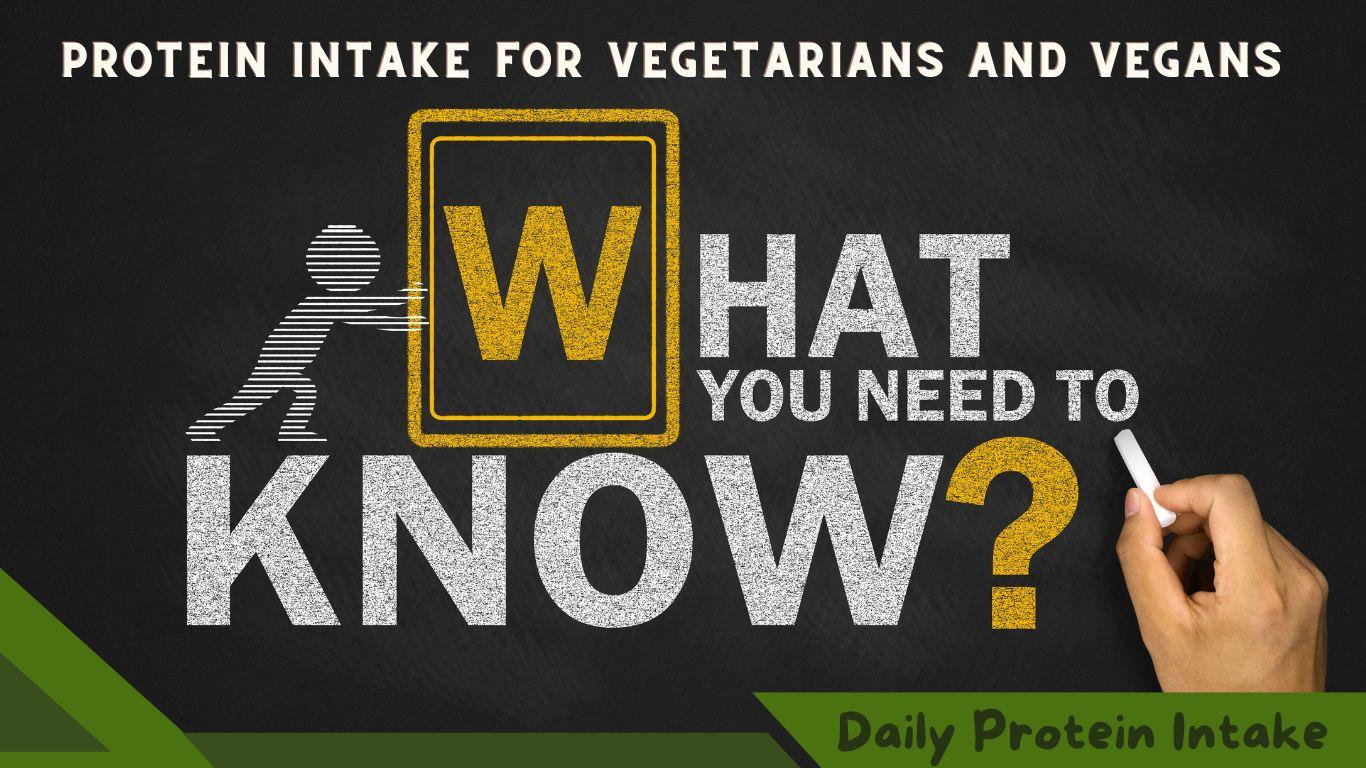Protein Intake for Vegetarians and Vegans: What You Need to Know

Are you a vegetarian or vegan? Do you worry if you’re eating enough protein? Protein is a vital nutrient. It helps the body build and fix tissues such as muscle, bone, and skin. Protein isn’t just in animal foods. Plants have protein too, and it can help meet daily needs. This article explains how vegetarians and vegans can get enough protein.
Understanding Protein Needs
Before discussing protein sources, let’s see how much protein you require. The RDA for protein is 0.8 grams per kg of body weight per day. For example, a person who weighs 68 kilograms (150 pounds) would need about 55 grams of protein per day. Experts suggest that vegetarians and vegans may need a little more protein than people who eat meat. That’s because plant-based protein sources are different from animal-based ones and aren’t as easy for the body to use.
Plant-Based Protein Sources
Fortunately, there are plenty of plant-based sources of protein to choose from. Here are some of the top options:
Legumes
Legumes, such as lentils, chickpeas, and black beans, are excellent sources of protein. Cooked lentils have 18g of protein per cup, while chickpeas have 15g per cup.
Nuts and Seeds
Nuts and seeds are other great sources of protein. Almonds have 8 grams of protein in a quarter cup, and pumpkin seeds have 9 grams in the same amount. This makes pumpkin seeds a better source of protein.
Whole Grains
Whole grains, such as quinoa, brown rice, and oats, also contain protein. For example, a cup of cooked quinoa has about 8 grams of protein, while a cup of cooked brown rice has about 5 grams.
Soy Products
Soy products like tofu, tempeh, and edamame are excellent sources of protein. They contain all the amino acids that your body needs. A half-cup of tofu contains about 10 grams of protein, while a cup of cooked edamame has about 17 grams.
| Related Article | The Best Protein Sources for Weight Loss and How Much You Need Daily |
Combining Protein Sources
You can make complete protein sources by mixing these plant protein sources. They are good alone or together. For instance, you can mix brown rice with black beans or eat hummus with whole-grain pita bread.
Tips for Meeting Protein Needs
Here are some tips to help you meet your protein needs on a vegetarian or vegan diet:
- Make sure you’re eating a variety of protein sources throughout the day.
- Aim to include protein with each meal and snack.
- Don’t forget about protein-rich snacks, such as roasted chickpeas or a handful of almonds.
- Consider using protein powder supplements, such as pea protein or soy protein isolate, to boost your intake if needed.
Conclusion:
Vegetarians and vegans can get enough protein from plant-based sources. These include legumes, nuts, seeds, whole grains, and soy products. You can have a healthy body by using both sources of food and eating enough protein throughout the day.
FAQs:
Q1. Is it difficult for vegetarians and vegans to get enough protein?
Not necessarily. Meeting protein needs on a plant-based diet can be challenging, but it’s possible. Plenty of options exist, and many people succeed without difficulty.
Q2. How much protein do I need if I’m vegetarian or vegan?
High school students should aim to consume 0.8 grams of protein per kilogram of body weight per day. Vegetarians and vegans may need a bit more protein to make up for the lower protein quality in plant-based foods compared to animal-based sources.
Q3. What are some good sources of plant-based protein?
There are many plant-based sources of protein. Some of them are legumes, nuts, and seeds. Others include whole grains, tofu, and tempeh made from soy.
Q4. How can I make sure I’m getting enough protein on a vegetarian or vegan diet?
Eating different sources of protein regularly is important. Be sure to have protein with every meal and snack. Adding protein to your diet can be simple. Try snacking on roasted chickpeas or almonds to increase your intake. Consider using protein powder supplements if needed.
Q5. Can vegetarians and vegans get all of the essential amino acids they need from plant-based sources?
Vegetarians and vegans can consume various plant-based proteins to obtain all the necessary amino acids for good health.




